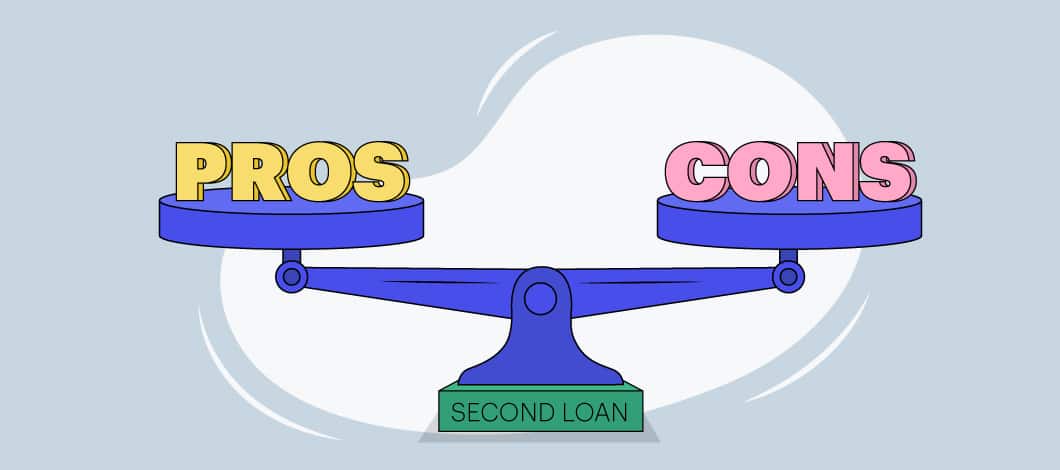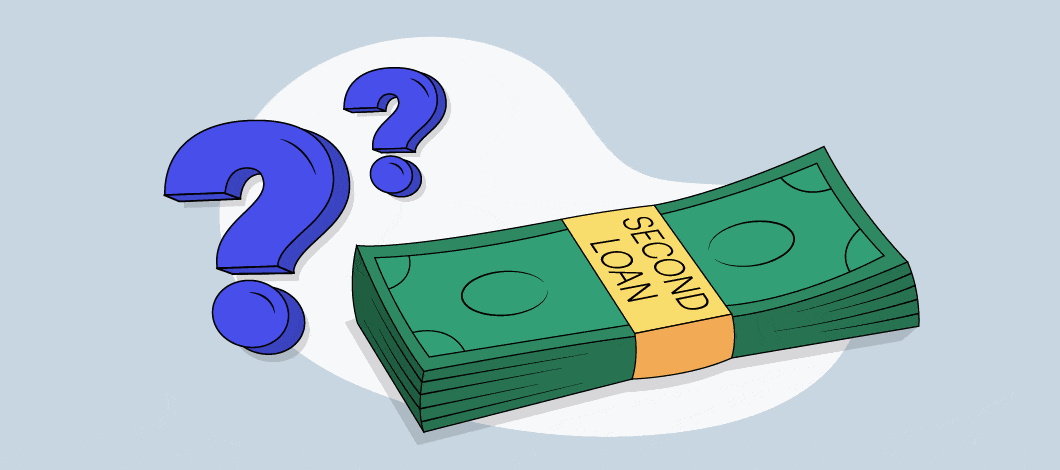If you’ve already borrowed a commercial loan and you still need cash, can you take out a second business loan? And should you?
Here’s our guide to second business loans. We’ll start by considering whether you can apply for multiple loans, including loans from the Small Business Administration (SBA). Then we’ll look at scenarios when you might consider a second business loan. Finally, we’ll examine the implications and pros and cons of second loans to help you determine whether this represents a good option for your financing needs.
Can You Apply for Multiple Loans?
The short answer is yes. In principle, nothing prohibits lenders from extending multiple loans to business borrowers.
For example, a company that has previously borrowed money to finance their start-up phase might return to the same lender to seek financing for a commercial real estate loan.
Whether a lender will approve a second loan falls under their discretion. Generally, the same factors banks consider before granting a loan to a business apply to second loans just as they would apply to first loans. Lenders consider criteria that reflect your creditworthiness and credit risk, such as your time in business, annual revenue, business credit score and ability to put up collateral.
Factors That Make Lenders Hesitate on Second Loans
If you’ve previously taken out another loan, this could be a factor that impacts a lender’s perception of your credit risk.
For example, if you’re already paying off one loan, lenders may be concerned that you don’t have enough cash flow to cover the interest on a second loan. You’ll need to show that you have enough cash coming in to cover both loans.
Got Collateral?
Collateral from your first loan can be another consideration. For instance, if you’ve already put up a piece of commercial real estate as collateral for one loan, it would be too risky for a lender to allow you to use the same property as collateral for a second loan. You’d need to provide some other reassurance of your ability to repay your loan, such as a different piece of collateral.
Lenders similarly may hesitate if your first loan involves business financing methods that rely on collateral representing money that hasn’t come in yet.
For example, invoice financing uses uncollected invoices as collateral, while merchant cash advances extend credit on the basis of future sales projections. Lenders are unlikely to approve a second loan if your first loan involved one of these types of methods. However, if your first loan involved a different type of financing, they may consider these methods for second loans, because the collateral involved hasn’t been committed to your first loan.
The bottom line is that lenders may consider a second loan if they think you have enough revenue and collateral to cover your original loan obligation as well as your new one. However, some lenders may have policies to avoid second loans, so this depends entirely on your lender.
How Many Loans Can You Take Out?
You can take out as many loans as your lender will allow based on their policy and your credit rating and collateral. Generally, lenders won’t allow you to take out more loans if you’re having difficulty repaying the ones you already borrowed or if your cash flow doesn’t demonstrate the ability to take on another debt.
How Many Loans Can You Have at Once?
You can take out as many loans at once as your lender will allow. Again, lenders will consider your ability to cover the loans you’ve already borrowed as well as your ability to repay an additional loan before approving another loan.
Can You Apply for an SBA Loan Twice?
In general, yes, with some qualifications. SBA loan programs have some eligibility requirements which are set by the SBA and some which are left to the discretion of lenders who facilitate SBA loans. The SBA’s restrictions for specific programs include limits on how much money may be borrowed by any one individual through that program, so you can’t apply for loan amounts that would exceed these amounts. Other SBA restrictions also may apply.
In addition to restrictions imposed by the SBA, lenders may impose their own criteria for approving second SBA loans. In general, expect lenders to consider the same factors they would review when evaluating your first SBA loan application, such as your time in business, credit score and ability to provide collateral and guarantees.
How Many SBA Loans Can You Have?
You can have as many SBA loans as your lender will approve, up to the amount limit for the type of loan involved.
When Would You Want a Second Loan?
There are various scenarios when you might consider seeking a second loan.
For example:
- Your first loan was for a different purpose than your second loan. For example, you may be seeking equipment financing to buy equipment so you can build on a new location you purchased with money from a previous loan.
- You have an opportunity to increase your profits by investing funds from a second loan. For example, you might have used your first loan to expand your store and you’re anticipating additional holiday business as a result, so you’re seeking a loan to purchase extra inventory.
- Your business is growing as a result of your first loan and you need additional financing to sustain your growth.
These are all examples of legitimate reasons for seeking a second loan. However, avoid seeking a second loan to cover a first loan you’re having difficulty paying off, and don’t use the same collateral to try to cover multiple loans.
How Does a Second Loan Affect Your First Loan?
If you take out a second loan, you’re still obligated to repay your first loan.
For certain types of second loans, such as second mortgages, if you default on your payments, you’re obligated to repay your first loan before repaying your second loan.

What Are the Pros and Cons of Applying for a Second Business Loan?
Second loans generally offer the same benefits as first loans, along with some distinct advantages. In general, they can allow you to cover expenses, expand your business or capitalize on growth opportunities. In particular, they can be used to fund costs not covered by first loans, or they can utilize collateral that hasn’t been committed to first loans.
On the other hand, second loans add to your monthly repayment obligations. This can make them more difficult to qualify for if your lender perceives you may have difficulty covering both loans.
Second loans may be easier to qualify for if you’re seeking types of loans that use collateral not committed to your first loan or loans which are self-collateralizing, lowering risk to lenders.
For example, invoice financing and merchant cash advances both use your accounts receivable as collateral, while equipment financing uses your equipment itself. In some cases, you may have more success qualifying for these types of financing as second loans.
Business lines of credit represent another type of financing which may be easier to qualify for as a second loan. Lenders can adjust your limit and interest rate and request collateral to mitigate their risk.
Is a Second Business Loan the Best Option for You?
Second business loans generally are possible for SBA loans and other types of loans. They may be an option when you need additional funding for a different purpose than your first loan, when you have an opportunity to generate additional revenue or when you need to sustain business growth.
However, whether a lender will extend you a second business loan depends on your lender’s policy, their assessment of your credit risk and the type of loan you’re seeking. Lenders are leery of borrowers who can’t afford multiple monthly payments and they avoid allowing you to use the same collateral for multiple loans. However, if you have good credit or if you have additional collateral, they may be willing to finance certain types of loans, particularly ones which represent low credit risk.
Whether a second business loan represents a good financing option for you depends on the specifics of your situation. Fast Capital 360 can help match your credit criteria to lenders who meet your needs. Take a few minutes to fill out our free no-obligation prequalifying form to see your loan options.











